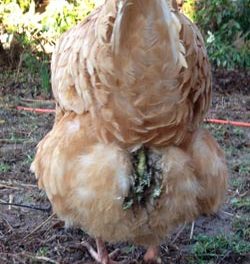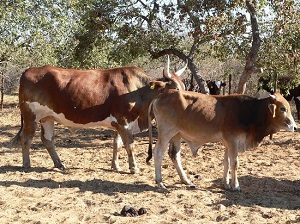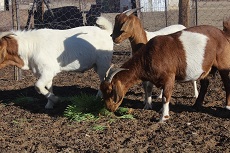
Maize yields 11 tonnes per hectare under irrigation

Sean Nicholson of Mashare Irrigation Project is the Master Agronomist for 2013 for cultivating white maize under irrigation. He is flanked by Floris Smit (left), the winner in 2012 for cultivating white maize under rain fed conditions and Christof Brock, CEO of the Namibia Agronomic Board.
Sean Nicholson of Mashare Irrigation was announced the winner of the Master Agronomist 2013 award of the Namibian Agronomic Board. Nicholson is one of four farmers shortlisted for the Master Agronomist 2013 Award for the production of maize and wheat under irrigation. Mashare is a Green Scheme Project of 160 ha of which 127 ha are under irrigation. Nicholson has been on the farm for the past eight years and he attributes his success at farming to adhering to solid business principles, a very strong personal work ethic and the desire to do things properly.
“The long and the short of it is you have to do things properly” he said This simple approach to everything he does translates into being intensely involved with everything that happens at Mashare, a farm that yielded 10.96 tonnes of maize per hectare in 2012.
A passionate farmer, Nicholson has his roots in running businesses in the agricultural sector in Zimbabwe.
He is under no illusion about the fickle nature of farming. “I always tell people that the best fertiliser a farmer can have is shoe leather. You have to observe your crops and know what is happening on the ground and what they require. It should be the crops that dictate what happens on the farm,” he says enthusiastically and adds, “If you farm properly, you’ll have money in the bank.”
A firm believer in paying close attention to detail, planning at Mashare is a crucial ingredient in the success of operations. “Preparation is essential and you have to be realistic. Never assume that something has been done, check it yourself. You have to accept responsibility for everything that happens on your land.”
A crucial part of planning at Mashare is preparing for their winter crop. “We double crop with wheat to spread our overheads to keep expenses as low as possible. In the winter we have a wheat crop and in the summer, we cultivate maize,” he says. Mashare employs seven permanent farm workers to keep this year-long process going and increases the staff complement by 10 during the irrigation periods.
In addition to producing a good yield of quality maize and wheat, Mashare also collaborates with tertiary institutions and seed companies to contribute to advances in food production and to give students practical agriculture experience. Students work at Mashare alongside farm workers for two to three months as part of their practical experience. Other projects that Mashare is involved with are trials with the Polytechnic of Namibia one of which is the use microorganisms in maize and wheat.
Mashare also produces hybrid maize seed that is sold to farmers in Katima Mulilo and to the Ministry of Agriculture. The seed is ideal for the northern regions because it is suited to low rainfall areas. It also makes the industry more self-sufficient because it reduces seed imports.
Nicholson says about his soil management and use of chemicals, “We do not abuse the soil. We do use chemicals, but not more than we need to.”












































